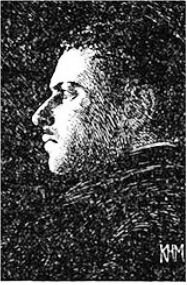
Henry W. Shoemaker
1880 - 1958Henry W. Shoemaker, born in 1880, was an American Folklorist, historian, diplomat, writer, publisher and conservationist. He was raised by his father Henry Francis Shoemaker, a railroad financer and investment banker, and by his mother Blanche Quiggle. While born in New York City, he spent his summers in McElhattan, Pennsylvania, at Restless Oaks Estate owned by his mother’s family. Later he wrote that this experience influenced his lifelong devotion to folklore, legend, hunting heritage, and historical and environmental preservation. He later moved to McElhattan.
Henry attended the E. D. Lyons Classical School and Columbia University. During his time in school, Henry would vacation by travelling through the mountains of western Pennsylvania, on foot, horseback or by buggy. Throughout his journeys, he befriended many people from lumber camps, farmhouses, and backwoods taverns, who would tell him stories of legend and myth. He collected every story told to him in a notebook he carried.
In 1903, he published a small volume from his collection of stories called “Wild Life in Western Pennsylvania” which ran through two editions. His work drew large amounts of criticism from his “altercations” and society claimed him of fabricating urban legend. Through his work, he hoped to make people more respectful and conservation-minded. Artists began using his stories for literature, poetry, art and music. Wild Life in Western Pennsylvania would become his most famous work.
On April 23, 1917, Shoemaker and five colleagues created Pennsylvania’s first environmental club by climbing up Mahanoy Mountain. This new organization, the Alpine Club, set to explore Pennsylvania’s mountains to study flora and fauna and to obtain data that would help in creating a greater love for the beauty of the state and a desire for conservation of natural resources. Shoemaker became president of the Alpine Club in 1917 and held this position until the Great Depression.
Shoemaker served on the State Forestry Commission from 1918 to 1930. In 1924, Henry cofounded the Pennsylvania Folklore Society with Bishop J.H. Darlington and was the society’s president from 1930 until 1957. While working for the Pennsylvania Folklore Society, he published a series of monographs over a span of eight years. Along with the monographs, Shoemaker began a daily column for the Altoona Tribute which he had purchased back in 1912. In his column, he wrote about the history of regional folklore and urged for cultural conservation efforts.
Shoemaker served as state archivists at Pennsylvania Historic and Museum Commission from 1937 to 1948 and state folklorist from 1948-1956. He was the state’s first folklorist; today, over 40 states have similar positions.
Shoemaker left his position as state folklorist in 1956, and retired to Restless Oaks. He died shortly after. Today you can find many of his papers located in repositories at the Pennsylvania State University, State Archives of Pennsylvania, and Juniata College (where the Shoemaker Gallery is named after him).
